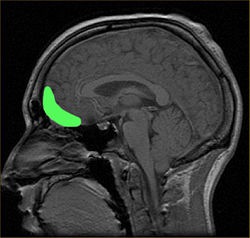Listen the podcast
People feel worried when they find a swelling of their flesh, when they have a fever or a black-out, or when their bodies hurt, or bleed. They immediately seek help. However, when they feel depressed, anxious, afraid, anguished or stressed, people do not seem to mind much about it. And they do not look for help. Eventually, people attach little importance to the effect of emotions on their general health.

Neither a positive nor a negative thought, exists independently of the biological system. This means that, when a person is depressed or happy, anxious or calmed, his or her body undergoes a lot of changes that range from the way his or her brain cells communicate with one another to hormonal imbalance, which can remain for days or weeks.
Negative thoughts can have a devastating impact on a person’s health, unlike happiness, optimism and satisfaction with life, which can have a healing effect.
We will present some ideas about how emotions can have a direct effect on the brain health, and in what way they can affect or preserve the brain functioning.
"Negative thoughts can have a devastating impact on a person’s health, unlike happiness, optimism and satisfaction with life, which can have a healing effect."
So, today, we talk about depression, this is a topic that the media and people talk about more frequently, during these times of COVID-19.
Several studies have proved that experiencing depression impacts negatively upon the structure and functions of the brain. It has also been observed that the brain fundamental parts can be reduced in size, such as the hippocampus, the prefrontal cortex, the amygdala and the thalamus.
How does this brain size reduction affect a person’s daily life?
The hippocampus, for example, is the key structure involved in storing the information from the short-term memory into the long-term memory.

Hippocampus
Humans have two hippocampi, one in each hemisphere of the brain. They are located in the medial temporal lobe of the brain.
In this lateral view of the human brain, the frontal lobe is at the left, the occipital lobe at the right, and the temporal and parietal lobes have largely been removed to reveal one of the hippocampi underneath.
It has also been proved that when a person tries to recall information from the past, the hippocampus helps bring that stored information to the present. This means that a person suffering from depression, usually have a loss of memory, as well as the inability to make decisions, to organize his or her behavior, and to control his or her impulses.
There is a puzzling paradox that depressed people experience. The more depressed a person is, the more his or her behaviors worsen the depression. This condition is like a self-destructing mechanism.

In order to illustrate what was previously stated, we can say that If a person has a headache, he or she takes a painkiller; if his or her hand is stung, he or she pulls it back; when a person is sitting in a position in which his back hurts, he stretches and takes a more comfortable position.
"There is a puzzling paradox that depressed people experience. The more depressed a person is, the more his or her behaviors worsen the depression"
But..., if a person is depressed, he or she stays away from his family and friends, neglects the maintenance of a good personal appearance, and rejects any enjoyable activity.
So, the question, inevitably, pops up into the listener’s mind: what should be done?
Mental health professionals agree that there are several alternatives for a person suffering from depression to cope with the illness.
Dear listener, in case that you, or any love one or friends, might be having a hard time with some kind of depression, there are some strategies that can help you cope with this disease. Bear in mind that there is no shortcut to good results.
Avoid social isolation. Keep in touch with relatives and friends. Social interactions with close people can provide a way out to situations considered without a solution.
Increase the physical activity. If you haven’t exercised for a long time, you can start walking for 20 minutes daily, until you reach 150 minutes a week.
Do not avoid thinking and talking about the situations that cause depression. Talk freely with family and friends about how you feel, otherwise you’ll get more anxious and will not feel very well.
Do not drink alcoholic beverages assuming that they make you feel fine. They are not certified medications and will only worsen your condition. And on top of all that, they cause addiction.
Organize a daily routine, starting early in the morning, and fulfill it. Depressed people start to get out of their usual habits. They go to bed very late at night, and, the morning after, they got no energy for the rest of the day. So, always go to bed at the same time: at ten o'clock.
And our most valuable suggestion is, seek professional help.
However, the listener may well ponder about all that have been said, and wonder: what if I become an optimistic person? Could I expect my brain to be healthier?
Up to now It is suggested that the brain in optimistic people function differently from that of the depressed people. For example, brain region, known as the orbito-frontal cortex, is larger in optimistic people, compared to the same brain region of those suffering depression.
Orbito-frontal cortex
The orbitofrontal cortex (OFC) is a prefrontal cortex region in the frontal lobes of the brain which is involved in the cognitive process of decision-making.
The orbitofrontal cortex is of great importance for humans. This brain region allows the adaptation of the human being to its natural and social environment. It also participates in emotional regulation and planning of the actions that we are going to carry out in the future.

What does this mean?
This brain region is involved in the decision-making process, planning the behavior and acting according to rules, and demands of a particular situation.
Optimism makes people more resilient in adversity. Depression reduces the size of structures that help us remember, recover information and manage our emotions.
Bear in mind: when looking after your emotions, you also look after your health.
Please, leave your comments and suggestions.